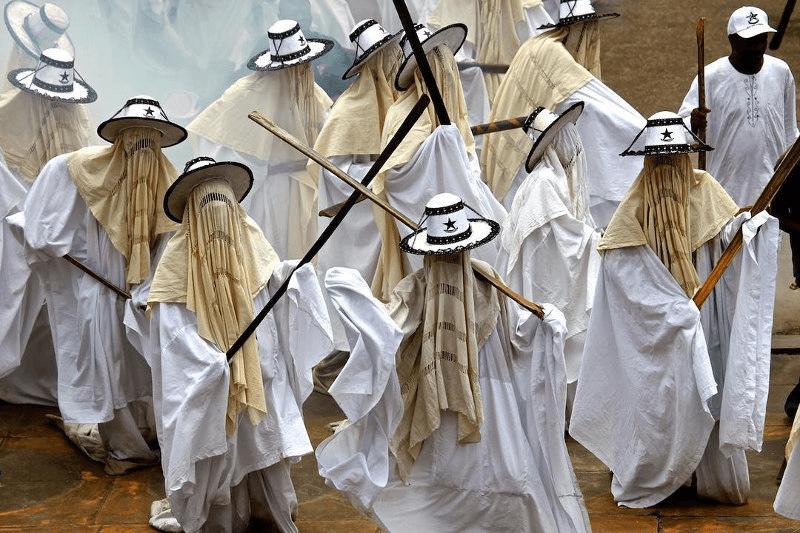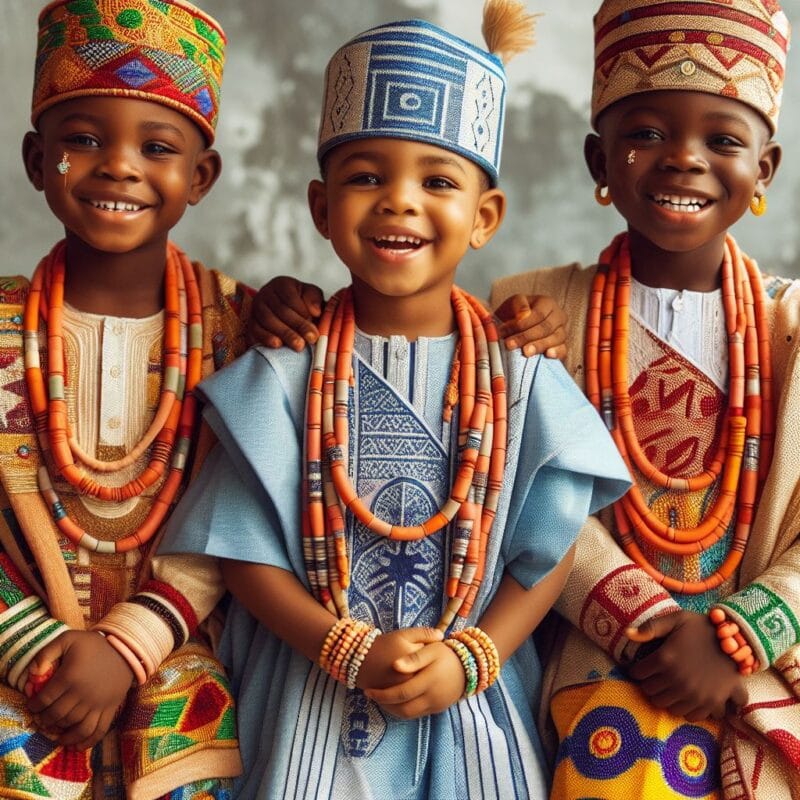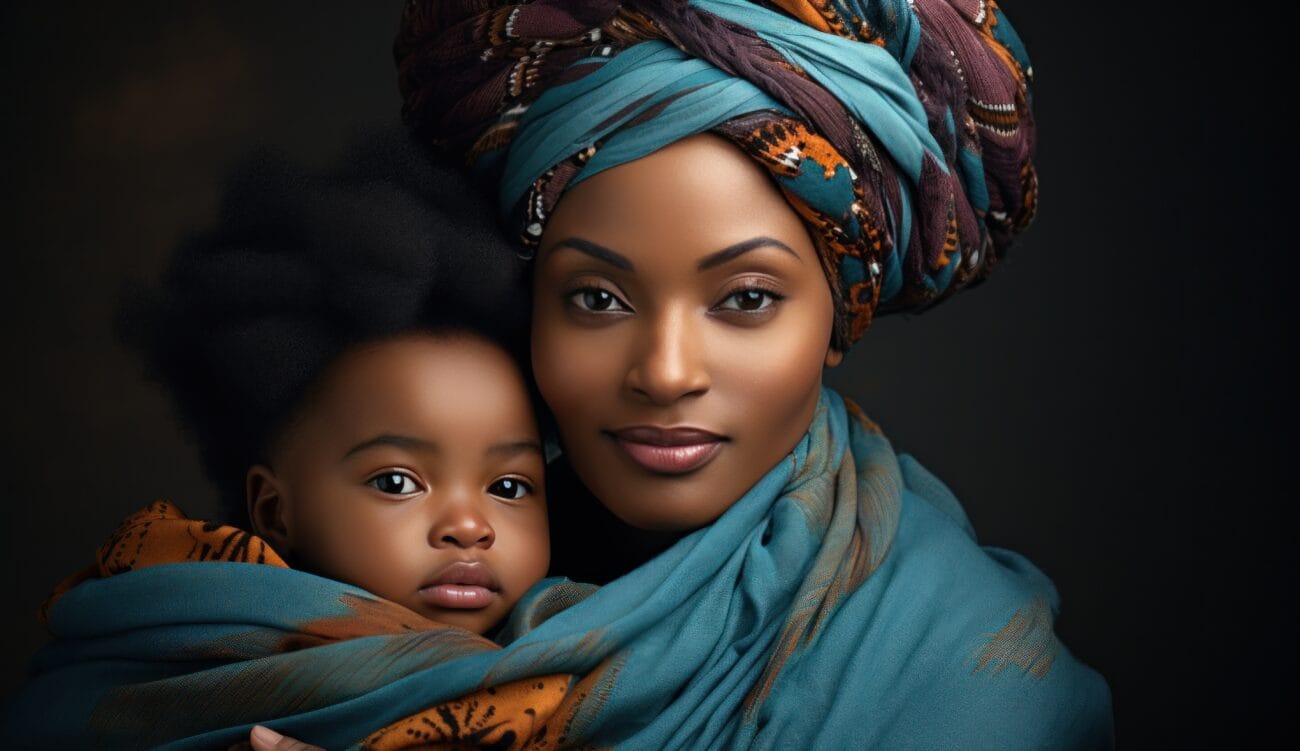The Beauty Of The Yoruba Culture

A brief history of the Yoruba culture
Long time ago, around 800 AD, the Yoruba people settled in West Africa, in what is now known as Nigeria, Togo, and Benin. They built a great society with their own language, beliefs, art, and culture. They were super good at farming, hunting, and trading, and their kingdom was really prosperous and peaceful. One cool thing about the Yoruba people is their myths and legends. They believed in many gods and goddesses, like Orunmila, Ogun, and Oshun, who helped them understand the world.
The slave traders cruelly took away many Yoruba people, causing immense harm to their community and culture. Despite all these challenges, they have kept their identity and culture strong till today. Currently, the Yorubas are one of the biggest ethnic groups in Africa, well known for their awesome music, art, and traditions.
Pretty interesting, right?
Let’s dive into the beautiful culture and traditions of the Yoruba people:
The Yoruba Language:
You maybe be surprised to know that people around the world, not just in Nigeria, actively, speaks the Yoruba language. It’s a language that transcends borders and holds immense importance. The Yoruba language is important as any other language in the world. In 2018, the Lagos State government recognized the significance of Yoruba by making it a compulsory language in schools. This move aimed to promote the language and preserve our cultural heritage.
Why is Yoruba an important language? For starters, it’s a rich language that allows for beautiful expression and communication. Its tonal nature and many vowels make it easy to pronounce. Communities in Brazil and Cuba have actively spoken and preserved the language, and now they see it as an important part of their cultural heritage. Learning Yoruba can open doors to new experiences and perspectives. It’s not just a local language; it’s a global language that deserves recognition and respect. Embrace your mother tongue and celebrate its uniqueness.

The Yoruba Religion
The Yoruba people have been living for thousands of years, and they have actively preserved and passed down their religion from generation to generation. They began their religion in West Africa, now known as Nigeria, and now been spread to other parts of the world.
The Yoruba people believe that every person has a special spirit inside them that they can nurture and strengthen themselves. They believe in Olodumare, recognized as the controller of the universe. And they think that every person has a special connection with the universe and the people around them.
The Yoruba religion is a rich and intricate faith that encompasses many facets, ultimately, it’s about living in harmony with nature and building strong bonds with others. At its heart, it’s all about community and family. These values are deeply ingrained in Yoruba culture, where family ties are strong and community is paramount. They believe that by living in harmony with each other and with nature, they can maintain balance and stability in their lives. They believe they are meant to look out for each other.
The Yoruba Mouth-watering Cuisines:
The Yoruba ethnic group is well known for the delectable food its members prepare and serve;
1. Efo Riro; it is a Vegetable Soup that’s packed with an array of green vegetables, richly flavoured with meat or fish, and spices. The cook actively stirs and simmers the ingredients to create a delicious and nutritious dish. The host serves the soup, accompanied by a side of swallow or rice, which the guests devour.

2. Ewedu; is a traditional soup made from jute leaves, locust beans, and potash, served with Gbegiri , amala and a side of fish or meat.

3. Gbegiri is za Beans Soup, made from peeled beans. This soup are usually, served with ewedu soup and amala or eba.

4.Obe Ata; is a Spicy Tomato Soup, flavourful and spicy soup made with tomatoes, peppers, and spices, served with rice, yam, or plantains.

Source; Serious eat
The Yoruba Festivals And Ceremonies
Do you know that the Yorubas are party folks? They are ready to celebrate anything worth celebrating, and they design their festivals and celebrations to take any form they choose. Below are some examples of their vibrant celebrations.
1. Marriage ceremony:
The Yoruba marriage ceremony is a joyful celebration where the groom’s family presents a marriage proposal to the bride’s family, bringing gifts called “Eru Iyawo”. The groom’s family actively seeks the bride’s family’s acceptance. After the acceptance the bride’s family welcomes the groom’s family with music, dance, and food..
2. Naming Ceremony:
The Yoruba naming ceremony is a special occasion that takes place on the 8th day after a child is born. As they gather together, they acknowledge their joint responsibility to raise the child and formally accept these shared responsibility.

3. Olojo Festival
The Olojo Festival is a vibrant celebration of Nigerian culture, honouring the creation of the universe and paying tribute to the deities Ogun and Ooni. The festival begins with sacred rituals, followed by colourful processions featuring traditional dancers, drummers, and musicians showcasing the rich cultural heritage of Nigeria. Afterwards, the festival features cultural exhibitions to showcase traditional clothing, masks, artistry, lively music and dance performances. The Olojo Festival is an opportunity to connect with Nigerian culture and heritage, honouring ancestors and celebrating the creation of the universe.
4. Ojude Oba Festival:
Ojude Oba Festival A unifying event for the Ijebu people, honouring their traditional monarch. It Features parades, equestrian shows, and ancestor tributes.
5. Osun-Osogbo Festival:
Osun -Osogbo festival honours the river goddess Osun and features rituals, ceremonies, and a parade to the Osun River.
6. Eyo Festival:
Honours notable persons and features Eyo masquerades, traditional drummers, and dancers. Symbolizes life, death, and ancestral links.
7. Sango Festival:
Revolves around the worship of Sango, the god of thunder. Features rites, ceremonies, traditional music, and dancing. Emphasizes community involvement and cultural preservation.
5 Fun Facts About The Yoruba:
- Yoruba is one of the largest cultural groups in Africa.
- Currently, there are about 50 million Yoruba speakers worldwide.
- Yoruba is the most popular culture in Africa
- People celebrates Oduduwa as the father of Yoruba and the founder of the Yoruba culture.
- The Yoruba are very social and expressive people who commemorate major events with colourful festivals and ceremonies.
Conclusion
At LearnWazobia, we’re passionate about sharing knowledge and helping you discover the beauty of Nigerian culture. Interested in learning more about Yoruba language and its beautiful culture, or any other Nigerian culture? We’re here to guide you through it! Register Here and start your journey.







Responses